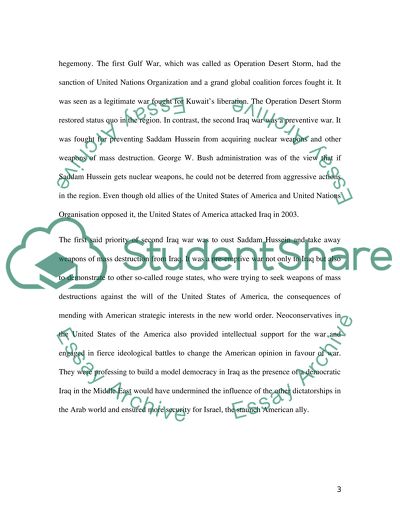Cite this document
(“Crises and conflicts in the middle east Essay Example | Topics and Well Written Essays - 1750 words”, n.d.)
Retrieved from https://studentshare.org/environmental-studies/1413979-crises-and-conflicts-in-the-middle-east
Retrieved from https://studentshare.org/environmental-studies/1413979-crises-and-conflicts-in-the-middle-east
(Crises and Conflicts in the Middle East Essay Example | Topics and Well Written Essays - 1750 Words)
https://studentshare.org/environmental-studies/1413979-crises-and-conflicts-in-the-middle-east.
https://studentshare.org/environmental-studies/1413979-crises-and-conflicts-in-the-middle-east.
“Crises and Conflicts in the Middle East Essay Example | Topics and Well Written Essays - 1750 Words”, n.d. https://studentshare.org/environmental-studies/1413979-crises-and-conflicts-in-the-middle-east.


